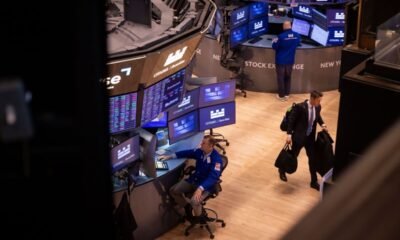Ethics & Policy
🚀 Futuristic Jobs in 2030

1. AI Ethics Consultant
Technology Link: Artificial Intelligence (AI) & Machine Learning
By 2030, AI will handle everything from school grading systems to job recruitment. An AI Ethics Consultant ensures these systems remain fair, unbiased, and transparent. They will guide schools, businesses, and governments in using AI responsibly, making sure human values are protected. For example, an AI ethics expert might prevent a hiring algorithm from rejecting candidates unfairly, or ensure an education app doesn’t rank students based on biased data. Their role is crucial because AI will be powerful, but it must remain trustworthy.
2. Virtual World Architect
Technology Link: Metaverse & Extended Reality (XR)
The metaverse will become a daily tool for learning and working. A Virtual World Architect designs immersive 3D environments where people can collaborate, play, and study. Imagine a classroom where students step into a realistic simulation of Ancient Egypt or conduct a science experiment on Mars—all without leaving their homes. These architects will need skills in design, psychology, and education to create engaging, safe, and effective digital spaces that feel almost as real as the physical world.

3. Human–Robot Collaboration Specialist
Technology Link: Robotics & Automation
Robots will be our coworkers in factories, hospitals, and even classrooms. A Human–Robot Collaboration Specialist ensures people and robots can work together safely and efficiently. In schools, robots might help teachers by grading homework, answering student questions, or even offering tutoring. Specialists will train humans to manage robotic assistants and make sure machines enhance, not replace, human creativity and empathy. They will also resolve conflicts—when robots malfunction or when people fear losing jobs to machines.

4. Genetic Health Designer
Technology Link: Biotechnology & CRISPR Gene Editing
By 2030, genetic engineering will allow us to prevent inherited diseases and even enhance human traits. A Genetic Health Designer will guide families in making ethical and scientific choices about their children’s DNA. Should we only remove diseases, or is it acceptable to improve intelligence or athletic ability? These experts will advise on such dilemmas. In education, students might learn personalized health plans based on their genetic profile. This career combines medicine, ethics, and technology.

5. Sustainable Energy Innovator
Technology Link: Renewable Energy & Green Tech
The future depends on clean energy. A Sustainable Energy Innovator will design technologies to power cities using solar, wind, tidal, and possibly nuclear fusion. Schools themselves may become energy producers—imagine classrooms that generate more power than they consume, supplying electricity back to the grid. These innovators will also create jobs that help communities live sustainably. Their work ensures that climate change doesn’t stop human progress, but instead inspires us to design smarter, greener lifestyles.

6. Data Privacy Guardian
Technology Link: Cybersecurity & Blockchain
In 2030, personal data will be one of the world’s most valuable resources. A Data Privacy Guardian will protect individuals, especially students, from having their private information misused. With everything connected—grades, medical records, finances—hackers will be a major threat. These guardians will design security systems, teach digital safety, and ensure companies follow strict privacy rules. In schools, they might build platforms where students learn safely without their data being stolen or sold.

7. Climate Adaptation Specialist
Technology Link: Environmental Tech & Geoengineering
As the planet warms, communities will need help adapting. Climate Adaptation Specialists will design solutions like floating schools in flood-prone areas, smart farming in deserts, and disaster-resistant housing. They will work with teachers to educate students about survival in a changing environment, combining science with practical skills. This role blends engineering, policy, and creativity, helping humanity face the climate challenges ahead.

8. Digital Currency Advisor
Technology Link: Cryptocurrency & Web3
Money is becoming digital, and by 2030, many countries may use blockchain-based currencies. A Digital Currency Advisor will help individuals, businesses, and even schools manage these new systems. Imagine students paying tuition fees in cryptocurrency, or teachers being paid in digital tokens. These advisors will also educate people about avoiding fraud and making smart investments. Their role is a mix of finance, education, and technology.

9. Neuro-Interface Designer
Technology Link: Brain–Computer Interfaces (BCI)
Future technology may allow humans to connect their brains directly with computers. A Neuro-Interface Designer will create tools that let people learn faster, communicate without speaking, or even control machines with thought alone. In classrooms, students might “download” information into memory, or practice skills in a simulated brain environment. While this may sound like science fiction, early versions of this tech already exist, and by 2030, it could transform education and work completely.

10. Space Tourism Guide
Technology Link: Space Tech & Commercial Rockets
With companies like SpaceX and Blue Origin already testing commercial flights, space tourism may be a normal experience by 2030. A Space Tourism Guide will prepare travelers for life beyond Earth—teaching them about zero gravity, safety in orbit, and the beauty of space. For students, this could mean educational trips to orbit Earth, visit a space hotel, or even tour the Moon. This role blends education, adventure, and science.

11. Emotion AI Designer
Technology Link: Artificial Emotional Intelligence
AI will not only think logically but also read and respond to human emotions. An Emotion AI Designer will create systems that can detect stress, happiness, or confusion and respond appropriately. In schools, this could mean AI tutors adjusting lessons if a student looks bored or frustrated. In workplaces, AI managers might improve teamwork by sensing conflicts. This career requires psychology, AI, and ethics combined.

12. Food Tech Engineer
Technology Link: Lab-Grown Food & Smart Agriculture
By 2030, feeding the world sustainably will be a top challenge. Food Tech Engineers will develop lab-grown meat, vertical farming, and 3D-printed meals. Students may learn nutrition through real-time food analysis devices that scan their meals and suggest improvements. This career ensures healthy, eco-friendly food for a growing population while reducing waste and environmental harm.

⚡ Conclusion
The world of 2030 will be shaped by AI, robotics, biotechnology, sustainability, and space exploration. Teachers and students will need to prepare for jobs that don’t yet exist today. These careers are not just about technology, but about human values, ethics, and creativity. Education will remain the bridge—ensuring every student can thrive in a world where learning is lifelong, and innovation never stops.
Ethics & Policy
Your browser is not supported
jacksonville.com wants to ensure the best experience for all of our readers, so we built our site to take advantage of the latest technology, making it faster and easier to use.
Unfortunately, your browser is not supported. Please download one of these browsers for the best experience on jacksonville.com
Ethics & Policy
Navigating the Investment Implications of Regulatory and Reputational Challenges

The generative AI industry, once hailed as a beacon of innovation, now faces a storm of regulatory scrutiny and reputational crises. For investors, the stakes are clear: companies like Meta, Microsoft, and Google must navigate a rapidly evolving legal landscape while balancing ethical obligations with profitability. This article examines how regulatory and reputational risks are reshaping the investment calculus for AI leaders, with a focus on Meta’s struggles and the contrasting strategies of its competitors.
The Regulatory Tightrope
In 2025, generative AI platforms are under unprecedented scrutiny. A Senate investigation led by Senator Josh Hawley (R-MO) is probing whether Meta’s AI systems enabled harmful interactions with children, including romantic roleplay and the dissemination of false medical advice [1]. Leaked internal documents revealed policies inconsistent with Meta’s public commitments, prompting lawmakers to demand transparency and documentation [1]. These revelations have not only intensified federal oversight but also spurred state-level action. Illinois and Nevada, for instance, have introduced legislation to regulate AI mental health bots, signaling a broader trend toward localized governance [2].
At the federal level, bipartisan efforts are gaining momentum. The AI Accountability and Personal Data Protection Act, introduced by Hawley and Richard Blumenthal, seeks to establish legal remedies for data misuse, while the No Adversarial AI Act aims to block foreign AI models from U.S. agencies [1]. These measures reflect a growing consensus that AI governance must extend beyond corporate responsibility to include enforceable legal frameworks.
Reputational Fallout and Legal Precedents
Meta’s reputational risks have been compounded by high-profile lawsuits. A Florida case involving a 14-year-old’s suicide linked to a Character.AI bot survived a First Amendment dismissal attempt, setting a dangerous precedent for liability [2]. Critics argue that AI chatbots failing to disclose their non-human nature or providing false medical advice erode public trust [4]. Consumer advocacy groups and digital rights organizations have amplified these concerns, pressuring companies to adopt ethical AI frameworks [3].
Meanwhile, Microsoft and Google have faced their own challenges. A bipartisan coalition of U.S. attorneys general has warned tech giants to address AI risks to children, with Meta’s alleged failures drawing particular criticism [1]. Google’s decision to shift data-labeling work away from Scale AI—after Meta’s $14.8 billion investment in the firm—highlights the competitive and regulatory tensions reshaping the industry [2]. Microsoft and OpenAI are also reevaluating their ties to Scale AI, underscoring the fragility of partnerships in a climate of mistrust [4].
Financial Implications: Capital Expenditures and Stock Volatility
Meta’s aggressive AI strategy has come at a cost. The company’s projected 2025 AI infrastructure spending ($66–72 billion) far exceeds Microsoft’s $80 billion capex for data centers, yet Meta’s stock has shown greater volatility, dropping -2.1% amid regulatory pressures [2]. Antitrust lawsuits threatening to force the divestiture of Instagram or WhatsApp add further uncertainty [5]. In contrast, Microsoft’s stock has demonstrated stability, with a lower average post-earnings drawdown of 8% compared to Meta’s 12% [2]. Microsoft’s focus on enterprise AI and Azure’s record $75 billion annual revenue has insulated it from some of the reputational turbulence facing Meta [1].
Despite Meta’s 78% earnings forecast hit rate (vs. Microsoft’s 69%), its high-risk, high-reward approach raises questions about long-term sustainability. For instance, Meta’s Reality Labs segment, which includes AI-driven projects, has driven 38% year-over-year EPS growth but also contributed to reorganizations and attrition [6]. Investors must weigh these factors against Microsoft’s diversified business model and strategic investments, such as its $13 billion stake in OpenAI [3].
Investment Implications: Balancing Innovation and Compliance
The AI industry’s future hinges on companies’ ability to align innovation with ethical and legal standards. For Meta, the path forward requires addressing Senate inquiries, mitigating reputational damage, and proving that its AI systems prioritize user safety over engagement metrics [4]. Competitors like Microsoft and Google may gain an edge by adopting transparent governance models and leveraging state-level regulatory trends to their advantage [1].
Conclusion
As AI ethics and legal risks dominate headlines, investors must scrutinize how companies navigate these challenges. Meta’s struggles highlight the perils of prioritizing growth over governance, while Microsoft’s stability underscores the value of a measured, enterprise-focused approach. For now, the AI landscape remains a high-stakes game of regulatory chess, where the winners will be those who balance innovation with accountability.
Source:
[1] Meta Platforms Inc.’s AI Policies Under Investigation and [https://www.mintz.com/insights-center/viewpoints/54731/2025-08-22-meta-platforms-incs-ai-policies-under-investigation-and]
[2] The AI Therapy Bubble: How Regulation and Reputational [https://www.ainvest.com/news/ai-therapy-bubble-regulation-reputational-risks-reshaping-mental-health-tech-market-2508/]
[3] Breaking down generative AI risks and mitigation options [https://www.wolterskluwer.com/en/expert-insights/breaking-down-generative-ai-risks-mitigation-options]
[4] Experts React to Reuters Reports on Meta’s AI Chatbot [https://techpolicy.press/experts-react-to-reuters-reports-on-metas-ai-chatbot-policies]
[5] AI Compliance: Meaning, Regulations, Challenges [https://www.scrut.io/post/ai-compliance]
[6] Meta’s AI Ambitions: Talent Volatility and Strategic Reorganization—A Double-Edged Sword for Investors [https://www.ainvest.com/news/meta-ai-ambitions-talent-volatility-strategic-reorganization-double-edged-sword-investors-2508/]
Ethics & Policy
7 Life-Changing Books Recommended by Catriona Wallace | Books

7 Life-Changing Books Recommended by Catriona Wallace (Picture Credit – Instagram)
Some books ignite something immediate. Others change you quietly, over time. For Dr Catriona Wallace—tech entrepreneur, AI ethics advocate, and one of Australia’s most influential business leaders, books are more than just ideas on paper. They are frameworks, provocations, and spiritual companions. Her reading list offers not just guidance for navigating leadership and technology, but for embracing identity, power, and inner purpose. These seven titles reflect a mind shaped by disruption, ethics, feminism, and wisdom. They are not trend-driven. They are transformational.
1. Lean In by Sheryl Sandberg
A landmark in feminist career literature, Lean In challenges women to pursue their ambitions while confronting the structural and cultural forces that hold them back. Sandberg uses her own journey at Facebook and Google to dissect gender inequality in leadership. The book is part memoir, part manifesto, and remains divisive for valid reasons. But Wallace cites it as essential for starting difficult conversations about workplace dynamics and ambition. It asks, simply: what would you do if you weren’t afraid?

2. Women and Power: A Manifesto by Mary Beard
In this sharp, incisive book, classicist Mary Beard examines the historical exclusion of women from power and public voice. From Medusa to misogynistic memes, Beard exposes how narratives built around silence and suppression persist today. The writing is fiery, brief, and packed with centuries of insight. Wallace recommends it for its ability to distil complex ideas into cultural clarity. It’s a reminder that power is not just a seat at the table; it is a script we are still rewriting.
3. The World of Numbers by Adam Spencer
A celebration of mathematics as storytelling, this book blends fun facts, puzzles, and history to reveal how numbers shape everything from music to human behaviour. Spencer, a comedian and maths lover, makes the subject inviting rather than intimidating. Wallace credits this book with sparking new curiosity about logic, data, and systems thinking. It’s not just for mathematicians. It’s for anyone ready to appreciate the beauty of patterns and the thinking habits that come with them.
4. Small Giants by Bo Burlingham
This book is a love letter to companies that chose to be great instead of big. Burlingham profiles fourteen businesses that opted for soul, purpose, and community over rapid growth. For Wallace, who has founded multiple mission-driven companies, this book affirms that success is not about scale. It is about integrity. Each story is a blueprint for building something meaningful, resilient, and values-aligned. It is a must-read for anyone tired of hustle culture and hungry for depth.
5. The Misogynist Factory by Alison Phipps
A searing academic work on the production of misogyny in modern institutions. Phipps connects the dots between sexual violence, neoliberalism, and resistance movements in a way that is as rigorous as it is radical. Wallace recommends this book for its clear-eyed confrontation of how systemic inequality persists beneath performative gestures. It equips readers with language to understand how power moves, morphs, and resists change. This is not light reading. It is a necessary reading for anyone seeking to challenge structural harm.
6. Tribes by Seth Godin
Godin’s central idea is simple but powerful: people don’t follow brands, they follow leaders who connect with them emotionally and intellectually. This book blends marketing, leadership, and human psychology to show how movements begin. Wallace highlights ‘Tribes’ as essential reading for purpose-driven founders and changemakers. It reminds readers that real influence is built on trust and shared values. Whether you’re leading a company or a cause, it’s a call to speak boldly and build your own tribe.
7. The Tibetan Book of Living and Dying by Sogyal Rinpoche
Equal parts spiritual guide and philosophical reflection, this book weaves Tibetan Buddhist teachings with Western perspectives on mortality, grief, and rebirth. Wallace turns to it not only for personal growth but also for grounding ethical decision-making in a deeper sense of purpose. It’s a book that speaks to those navigating endings—personal, spiritual, or professional and offers a path toward clarity and compassion. It does not offer answers. It offers presence, which is often far more powerful.

The books that shape us are often those that disrupt us first. Catriona Wallace’s list is not filled with comfort reads. It’s made of hard questions, structural truths, and radical shifts in thinking. From feminist manifestos to Buddhist reflections, from purpose-led business to systemic critique, this bookshelf is a mirror of her own leadership—decisive, curious, and grounded in values. If you’re building something bold or seeking language for change, there’s a good chance one of these books will meet you where you are and carry you further than you expected.
-
Tools & Platforms3 weeks ago
Building Trust in Military AI Starts with Opening the Black Box – War on the Rocks
-

 Business2 days ago
Business2 days agoThe Guardian view on Trump and the Fed: independence is no substitute for accountability | Editorial
-

 Ethics & Policy1 month ago
Ethics & Policy1 month agoSDAIA Supports Saudi Arabia’s Leadership in Shaping Global AI Ethics, Policy, and Research – وكالة الأنباء السعودية
-

 Events & Conferences3 months ago
Events & Conferences3 months agoJourney to 1000 models: Scaling Instagram’s recommendation system
-

 Jobs & Careers2 months ago
Jobs & Careers2 months agoMumbai-based Perplexity Alternative Has 60k+ Users Without Funding
-

 Funding & Business2 months ago
Funding & Business2 months agoKayak and Expedia race to build AI travel agents that turn social posts into itineraries
-

 Education2 months ago
Education2 months agoVEX Robotics launches AI-powered classroom robotics system
-

 Podcasts & Talks2 months ago
Podcasts & Talks2 months agoHappy 4th of July! 🎆 Made with Veo 3 in Gemini
-

 Podcasts & Talks2 months ago
Podcasts & Talks2 months agoOpenAI 🤝 @teamganassi
-

 Mergers & Acquisitions2 months ago
Mergers & Acquisitions2 months agoDonald Trump suggests US government review subsidies to Elon Musk’s companies



















